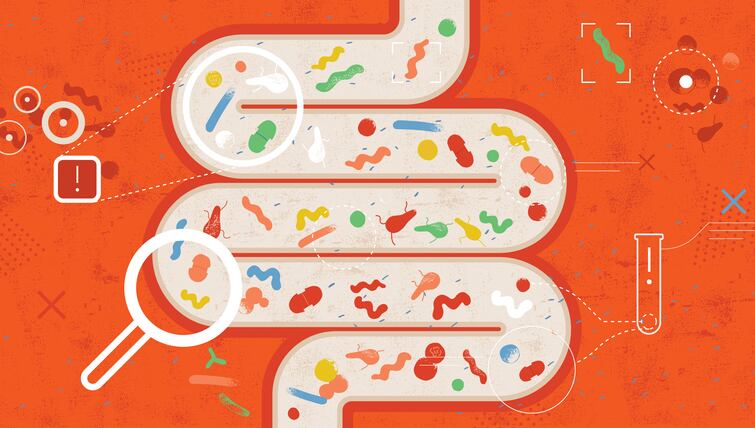The Great Chinese Famine lasted from 1959 to 1961 during the leadership of Mao Tse Tung and was characterised by widespread food shortages and famine in China. The crisis was largely attributed to the implementation of radical agricultural and economic policies, such as the Great Leap Forward, which led to mass collectivisation and inefficiencies in farming practices.
The combination of natural disasters, mismanagement and the focus on industrialisation over agriculture resulted in a severe food crisis. Estimates of the death toll vary but it is believed that tens of millions of people died as a result of starvation and related causes during this period.
A recent study, led by China’s Westlake University, delved into the intricate relationship between early-life famine exposure, alterations in the gut microbiome, and the subsequent risk of type 2 diabetes. Involving 11,513 participants, the study spanned three major independent Chinese cohorts — the Great Northern Han Chinese Health Study (GNHS), Great Green Mountain Project (GGMP) and the China Health and Nutrition Survey (CHNS).
Rigours of research
The research, rooted in the Developmental Origins of Health and Disease (DOHaD) hypothesis, explored how adverse exposures during early life — particularly in utero — could markedly influence later-life health and disease status. Drawing on the context of the Great Chinese Famine, a natural experiment unfolded, providing a unique opportunity to investigate the long-term impact of early-life adverse exposure on gut microbiota and its role in DOHaD.
Participants, spanning 16 major provinces and megacities across China, underwent comprehensive examination of gut microbial diversity, community structure and keystone taxa. The primary focus was to investigate the association between early-life famine exposure and adult gut microbial alterations, with a secondary objective of assessing its link to type 2 diabetes.
Demographic and medication data were collected through face-to-face questionnaire interviews, encompassing crucial factors such as age, sex, date of birth, average household income, and medication use, including antibiotics, hypoglycaemic drugs and hypolipidemic drugs. Anthropometric measurements, blood samples and detailed metabolic data were also gathered, ensuring a comprehensive dataset.
Findings on the famished
Participants were classified into various exposure groups based on their birth year, ranging from those born during the famine to those born before and after, providing a nuanced understanding of the impact of famine exposure during different life stages.
The gut microbiome analyses involved sequencing stool samples from each cohort in a single batch, which the researchers used to examine the variations in gut microbial composition among the three cohorts.
The study underscored the critical role of the gut microbiome in the DOHaD hypothesis, shedding light on the potential mechanisms linking early-life malnutrition to gut microbial dysbiosis in adults. At the same time, keystone taxa identified in the study were found to be crucial in influencing insulin resistance and metabolic health.
The researchers reported that famine exposure during the first 1,000 days of life was significantly associated with alterations in gut microbial alpha diversity, with consistently lower diversity observed across the cohorts.
They also identified specific keystone taxa that played a central role in the microbial ecosystem. These keystone taxa were not only associated with gut microbial alpha diversity but were also found to be disrupted in participants exposed to famine during the critical first 1,000 days of life. Furthermore, disturbances in the gut microbiome were found to be positively associated with the risk of type 2 diabetes.
The researchers stated: “Compared with the no-exposed control group (born during 1962 to 1964), participants who were exposed to the famine during the first 1,000 days of life (born in 1959) had consistently lower gut microbial alpha diversity and alterations in the gut microbial community during adulthood across the three cohorts.
“Compared with the no-exposed control group, participants who were exposed to famine during the first 1,000 days of life were associated with consistently lower levels of keystone taxa index in the three cohorts. Per 1-standard deviation increment in the keystone taxa index was associated with a 13% lower risk of type 2 diabetes, with consistent results across three individual cohorts.”
Breaking new ground
While the study was the first to comprehensively examine the lifelong impact of early-life famine exposure on the adult gut microbiota, certain limitations, including potential bias due to the observational nature of the study and sample size constraints, were acknowledged. The findings, however, were consistent across diverse cohorts, bolstering their generalisability.
The study also signifies a paradigm shift in understanding the developmental origins of health and disease, highlighting the pivotal role of the gut microbiome. Additionally, the identified keystone taxa offered potential targets for interventions or therapeutics in addressing type 2 diabetes, with further investigations warranted to validate and elucidate the underlying mechanisms of these ground-breaking findings.
Source: BMC Medicine
“Early-life exposure to the Great Chinese Famine and gut microbiome disruption across adulthood for type 2 diabetes: three population-based cohort studies”
https://doi.org/10.1186/s12916-023-03123-y
Authors: Wanglong Gou, et al.

